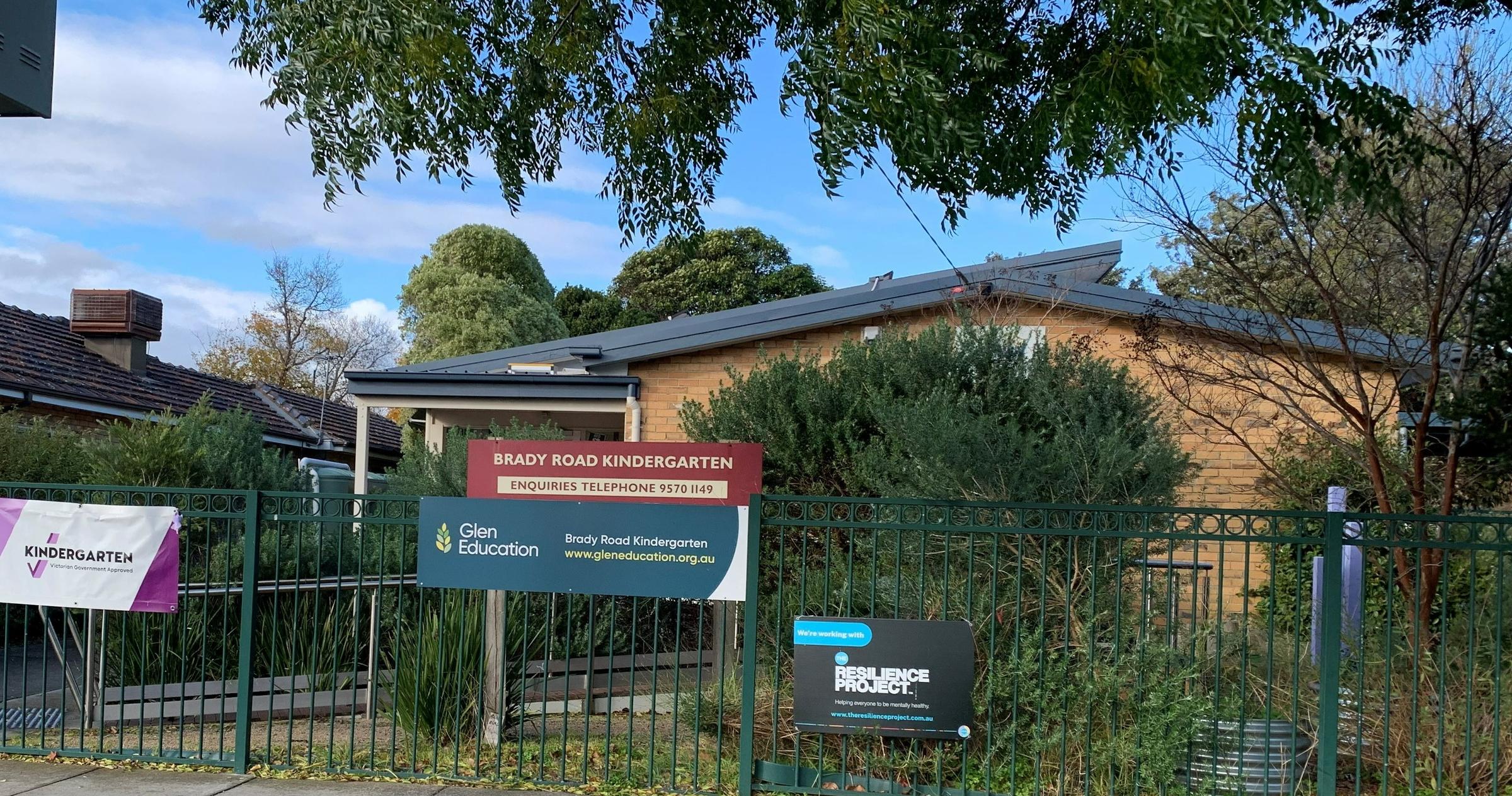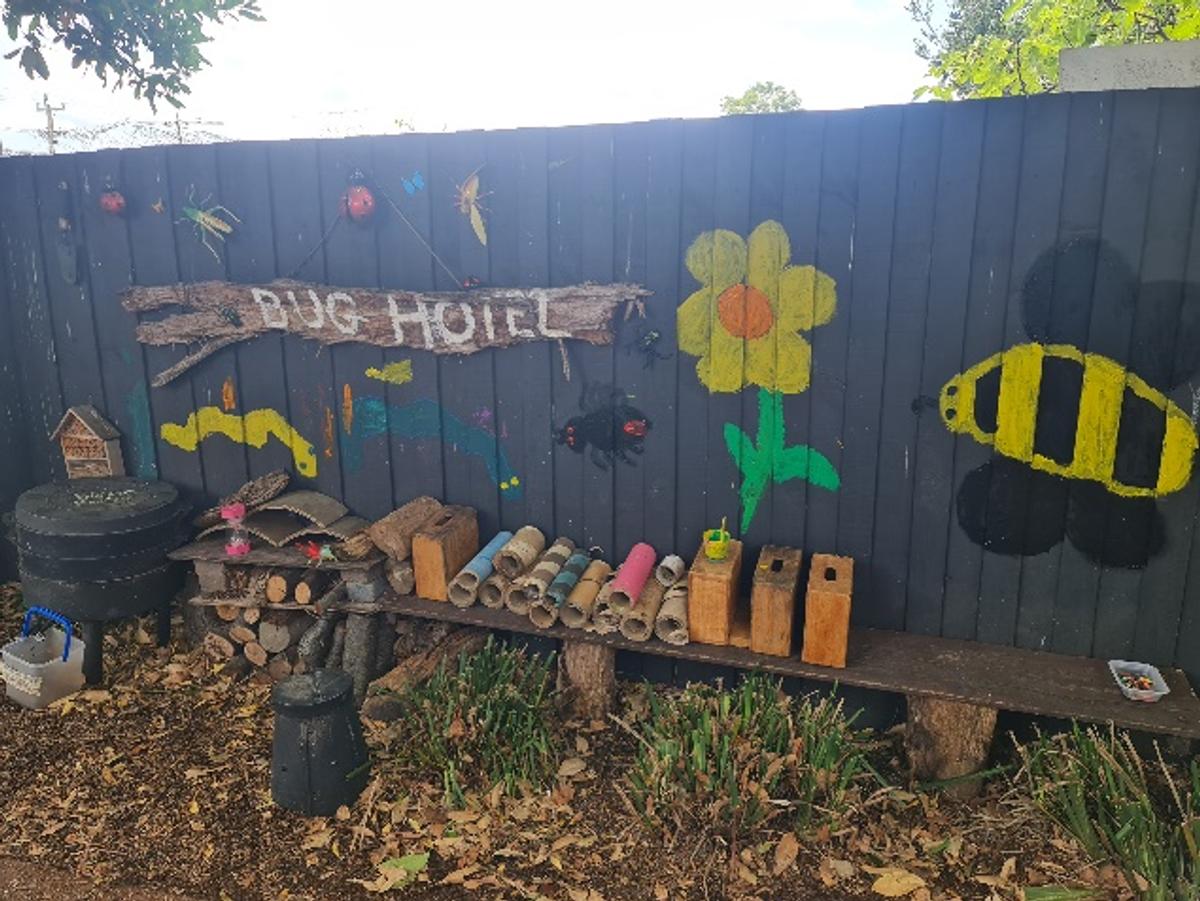Glen Education Brady Road

Establishing Respectful Relationships
Glen Brady Road Kindergarten Educators
Quality Area 1: Educational program and practice
As learning another language at a young age has many lifelong benefits including promoting cognitive flexibility, improving problem-solving skills, fostering deeper connections with different cultures and languages, we applied for a grant of Early Childhood Language Program in 2022 to implement an ongoing Mandarin program at Glen Brady Road Kindergarten. This was in response to our enrolments, which include children’s whose home languages are Mandarin at Glen BRK. When they see their home language spoken by their educators and peers, it can invoke feelings of pride and strengthen their self-esteem and cultural identity. By encouraging diverse language skills in our kindergarten, we are building stronger communities and preparing children for a more globalized and connected world.
Our language teacher and educators encourage the children to learn “in” a language that integrates the new language into the children’s experiences and routines. Exposure to language content and vocabulary occurs in meaningful ways and in context through these rich and complex experiences, for example welcoming during arrivals and goodbyes at departure times, toileting times, transitions, snacks and eating. The children enjoy the game Simon Says in Mandarin, pretend play Juice bar, a variety of Chinese culture related songs, games, art and craft work. These moments will provide an opportunity to nurture understanding in another language, program learning opportunities and intentional teaching.
The language program is delivered in a flexible way, whole groups, small groups and child-initiated play so as to meet children’s needs. Formative assessment is used for assessing children’s learning through observations that have been reflected in children's portfolios and program reflection book.
This program also aims to engage families as well. We send regular updates about how ECLP is progressing through emails and Parent Information Sheet that shares songs or vocabulary learnt at kinder. For example, at the end of the last year, all families were invited to the language program gathering to experience culture-related presentations and activities with their children.
- Yan Li, Early Childhood Teacher
Quality Area 3: Physical environment
Here at Glen Brady Road Kindergarten, we are continually modelling respect, care, and appreciation for the nature environment -by talking with children about the importance of composting, reusing recycled materials for art and craft projects, saving water and electricity – turning lights off on sunny days and packing a plastic wrapper free lunch and snack box.
I believe families have really embraced our “Nude Food” lunch and snack boxes, because the children have taken what they have learnt at kinder and shared it with their families- proving to families that children really are where we need to start the education for sustaining out planet. This year the children have been busy planting up our 2 vegetable gardens with seedlings donated by Bunnings which will hopefully yield enough veggies to make a few pots of veggie soup, a stir fry, as well as encouraging them to try something new to taste.
We continually find ways of empowering children to care for and learn from the land by embedding sustainability into daily routines and practices. We want and need the children become socially responsible and to show respect for the environment and recycling, reducing and reusing is an excellent way to start.
- Lynne McCracken, Early Childhood Educator
Quality Area 6: Collaborative partnership with families and communities
At Glen Brady Road kindergarten, we value individual approaches to transitions. Sometimes when children begin kindergarten, they can have difficulties separating from their parents. We work together, families and educators, to help the child build trust, develop confidence and feel secure in their new environment. It is important to us that families always feel comfortable to leave their child in our care. Below are the reflections of one of our parents from this year on how educators have supported their child's transition:
A parent’s voice - Stephanie
"As a parents of a 3-year-old child who spent most of her life in lockdown, we were concerned how she would cope with starting kinder. She had developed extreme social and separation anxiety and was not keen on going anywhere without me. She attended “occasional care” for a few months in preparation for kinder as she had only ever been left in the care of family.
The educational team at Glen Brady Road kindergarten were very supportive from the moment we had our orientation. They allowed me to stay at kinder with my daughter for as long as it took for her to feel comfortable there. It was a slow process and took 4-6 weeks before my daughter could cope with a separation. The staff worked closely with me, allowing me to observe their teaching philosophy and interactions with all the children. I never felt rushed or forced into a quick “drop-off”, leaving my daughter at kinder.
While we still experience the occasional sadness and anxiety at drop off time, my daughter now mostly enjoys attending kinder and has made a number of friends."
- Stella Eizenberg, Early Childhood Teacher
Quality Area 5 -Relationships with Children
During Term 1 the team observed several children within the kindergarten that often appeared to be around the perimeter of group activities and intentional teaching discussions, appearing hesitant to join in.
The team reflected that in order to continue to get to know these children we would increase our conversations with the families about their child’s interests and encourage continued chats and discussions with the children throughout the sessions. We were able to incorporate the interests of the children more directly into play and activities that they had a personal connection with.
We encouraged the children to enter appropriate small group activities with the support of an educator i.e., Story reading and re telling, playdough, simple board games. When children chose to engage in these experiences educators worked alongside children to model and scaffold their learning and social interactions. This supported children to feel a little less overwhelmed and more likely to feel comfortable to communicate and interact with their peers. We noticed over time that the children engaged in more shared play, and other children began to engage, help and support the children to join in some different play experiences.
It was important for all the children and this group in particular, that the educators ensured that the play experiences, were as calm and relaxed as possible, to enable the children to be explore and follow their own choices with growing confidence. It was also important for the educators to be positive and enthusiastic in recognising the children’s efforts as their confidence developed.
- Lee Silvers, Early Childhood Educator
Quality Area 3: Physical environment
There are numerous practices we have embedded in our service to encourage children to develop sustainable practices. Educators encourage children throughout the year to engage in sustainable practices and to develop their own ideas around sustainability. It's gratifying to see many of the children display interest in remembering to collect reusable items for kinder, mainly the ongoing collections of numerous bottle caps, yoghurt caps, juice & milk caps for our recyclable artwork decorations. Something children have been taking a personal interest in is collecting various sized laundry washing detergent caps for creating creative geo-metrical artworks which are sensational, this allows children to think outside the box and consider how to repurpose items that may otherwise be landfill.
Another example of embedded practice involves children helping to maintain a well visited area of our garden, the worm farm. Children often check how much worm wee has been made!! Then collect buckets of the nutritious liquid for our veggie garden & plants. We have encouraged collecting our food scraps & had many discussions inside at snack and lunch times about the benefits of saving our scraps for the worm garden. Some children love to visit the worm garden just to see the worms, which supports educators to discuss the compost recycling process. We've had positive feedback from families as their children's interests have developed at home as well.
This has enabled our partnerships with families too, as we have been lucky enough to have a family share their knowledge about Bee keeping and teach us the importance of Bee's are in our environment. Educators provide additional extensions on learning through cooking experiences using our own produce.
- Vernessa Johnstone, Early Childhood Educator

